Non-Lethal Levels of Pesticides Can Cause Life-Altering Effects on Bee Larvae, Study Shows
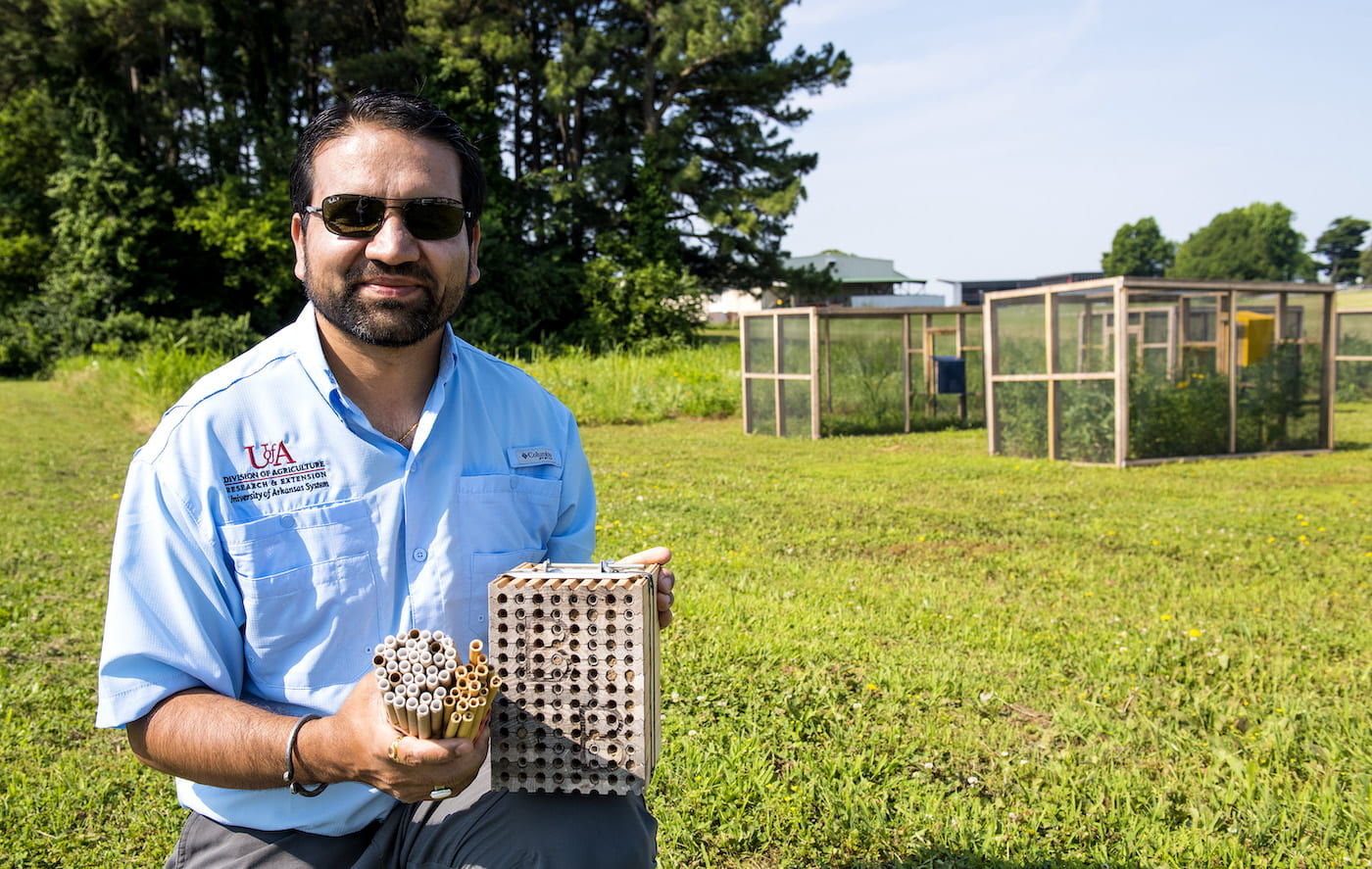

Neelendra Joshi
Associate Professor of Pollinator Health, Fruit Entomology, IPM and Toxicology
Contact Neelendra Joshi
The Problem
Native bee populations are imperative for agricultural production, especially as populations of managed honeybee colonies are declining.
While pesticides are a necessary tool for farmers to protect their crops from insect pests that can inflict severe damage on crops, native bees risk contact with pesticide residues even months after spraying.
Pesticide residues might not kill bees but can cause debilitating health effects. And mature bees risk carrying the toxins to their nests where it is stored to feed their young upon hatching.
The Work
Neelendra Joshi, associate professor of entomology for the Arkansas Agricultural Experiment Station, is leading a team of researchers to determine how varying levels of pesticide exposure impact wild bees.
The researchers are also studying ways to reduce or avoid bee exposure and how bees can recover from the effects of the toxins.
Ngoc Phan, a post-doctoral researcher and toxicologist in Joshi’s lab, is using research protocols from her time as a graduate student at Pennsylvania State University to study native bee species in field-realistic conditions.
Phan is studying pesticide exposure in mature bees during pollination activity and in bee larvae exposed to residues from stored pollen and soil particles used to build the nest chambers. She observes the larvae through their entire life cycle.
Olivia Kline, a Ph.D. student in Joshi’s lab, is investigating how bees’ physiology may help them survive exposure to pesticides by understanding how they detoxify in their bodies.
Kline is focusing on how bees use enzymes or their gut microbiome — communities of microorganisms in the intestinal system of animals — to detoxify the pesticides and how different diets impact health.
The researchers are determining what gut bacteria can help bees survive pesticide exposure and how the pesticides affect the gut microbiomes.
The Results
Lower levels of pesticides, though not lethal, impeded some bees’ abilities to fly and navigate, according to a 2021 study by the researchers.
Phan’s research reveals that larvae exposed to non-lethal amounts of pesticides have shorter lifespans and are smaller than normal. Bee body size is correlated to foraging efficiency, homing ability, dispersal, and the ability to reproduce. Smaller female bees lay few eggs or even none.
Native bees only reproduce once a year. If pesticides contaminate the nests, that line of bees can die out.
Little is known about the gut microorganism communities of native solitary bees. This research aims to find possible diet supplements for managed bees to boost pesticide tolerances.
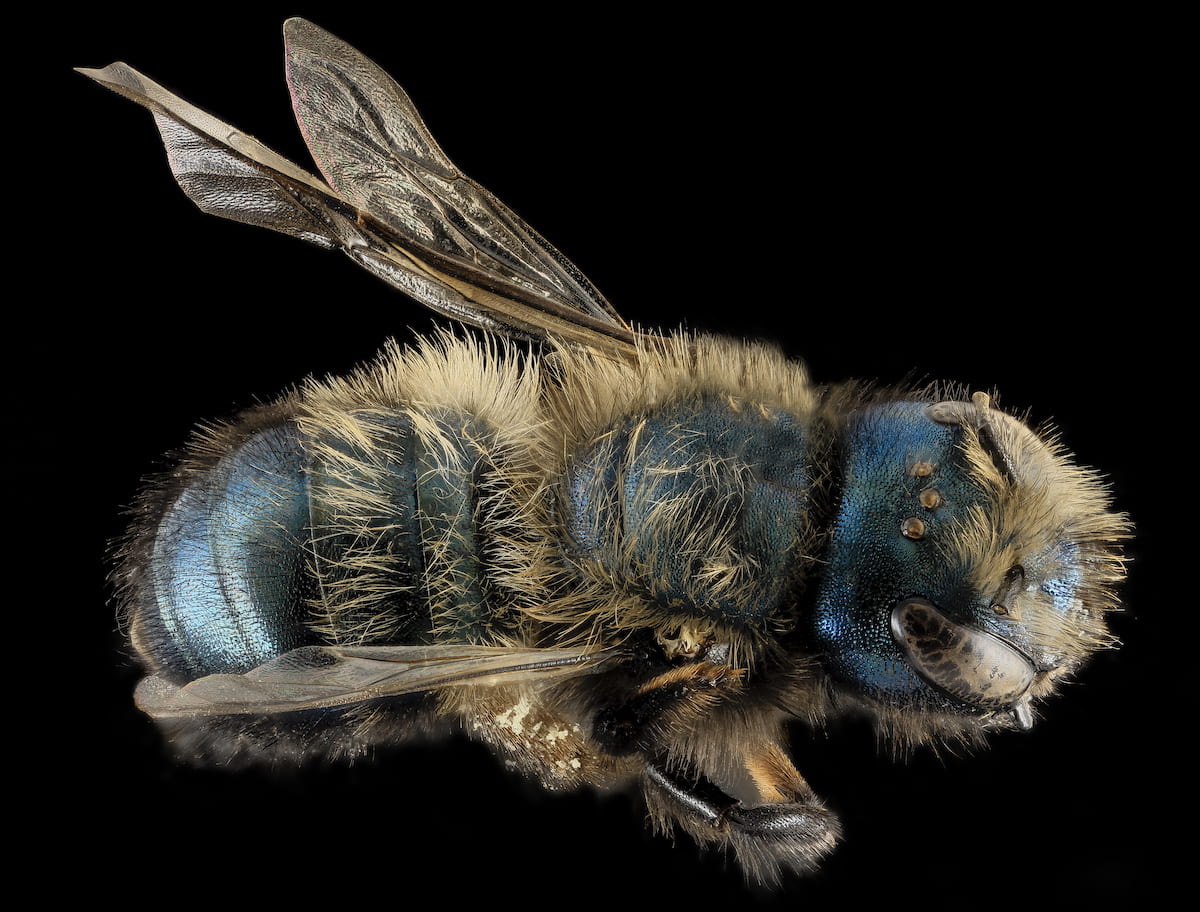
The Value
While much attention is paid to managed honeybees, this research focuses on native bee populations. Depending on the crop and location, native bees can provide as much or more pollination services than managed honeybee populations. For example, according to a 2007 study, researchers found that native bees were responsible for 62 percent (plus or minus 5 percent) of pollination in watermelon crops.
Understanding the health effects of residual pesticides on native bees and finding potential mitigating factors will help producers better manage native bee populations. Native bees may in turn take on greater responsibility as food pollinators.
Joshi plans to develop a system to monitor native bee activities with Micro-RFID tags. The tags will be glued to the bees and will track how often they leave their nest, how long they stay out before returning, if they do not return, or if different agricultural pesticide exposure causes the bees to not collect pollen again after arriving at their nest.
Joshi also wants to educate the public about Arkansas’ native bees with live education programs and publications.
About the Researcher
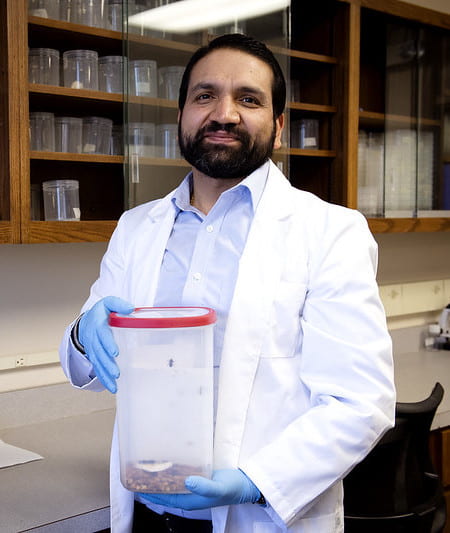
Neelendra Joshi
Associate Professor of Pollinator Health, Fruit Entomology, IPM and Toxicology University of Arkansas
- B.S., Biology (Botany, Zoology, Chemistry), Kuman University Nainital
- M.S., Agriculture Entomology, G.B. Pant University of Agriculture and Technology Pantnagar
- Ph.D., (Dual Degree), Entomology and Comparative & International Education, Pennsylvania State University
Joshi’s research focuses on insect conservation and biodiversity, pollinator health, management and conservation. He also focuses on the toxicology, ecotoxicology and risks of pesticides. With his research on bees, he wants to raise awareness on native bee species in the state with public education programs and publications.
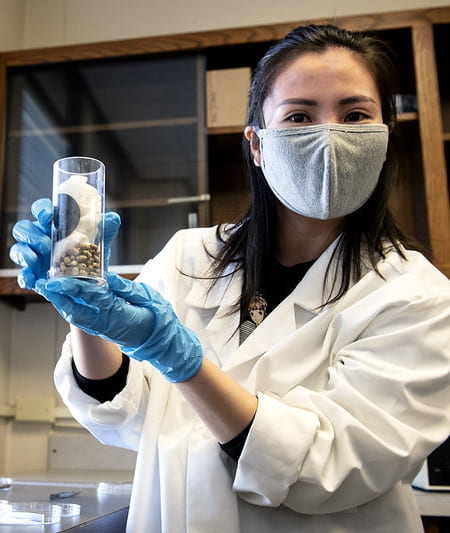
Ngoc Phan
Postdoctoral Fellow, University of Arkansas
- B.S., Agronomy and Crop Science, Vietnam National University of Agriculture
- Ph.D., Entomology and International Agriculture and Development, Pennsylvania State University
Phan is a postdoctoral Fellow at the University of Arkansas Entomology and Plant Pathology department. Phan’s research focuses on pesticide risk assessment and bee behavior.
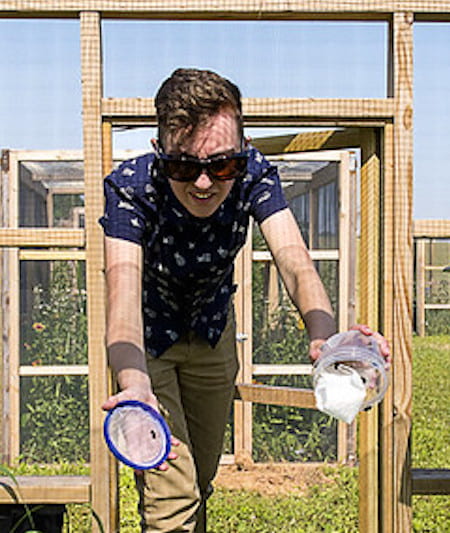
Olivia Kline
Ph.D. Candidate, University of Arkansas
- B.S., Molecular Biology, Beloit College
Kline is a senior graduate assistant and Ph.D. candidate in the University of Arkansas Entomology and Plant Pathology department. Kline has received many awards for her work including the President’s Prize in the Entomological Society of America. Kline’s research focuses on insect ecology and agricultural entomology.
